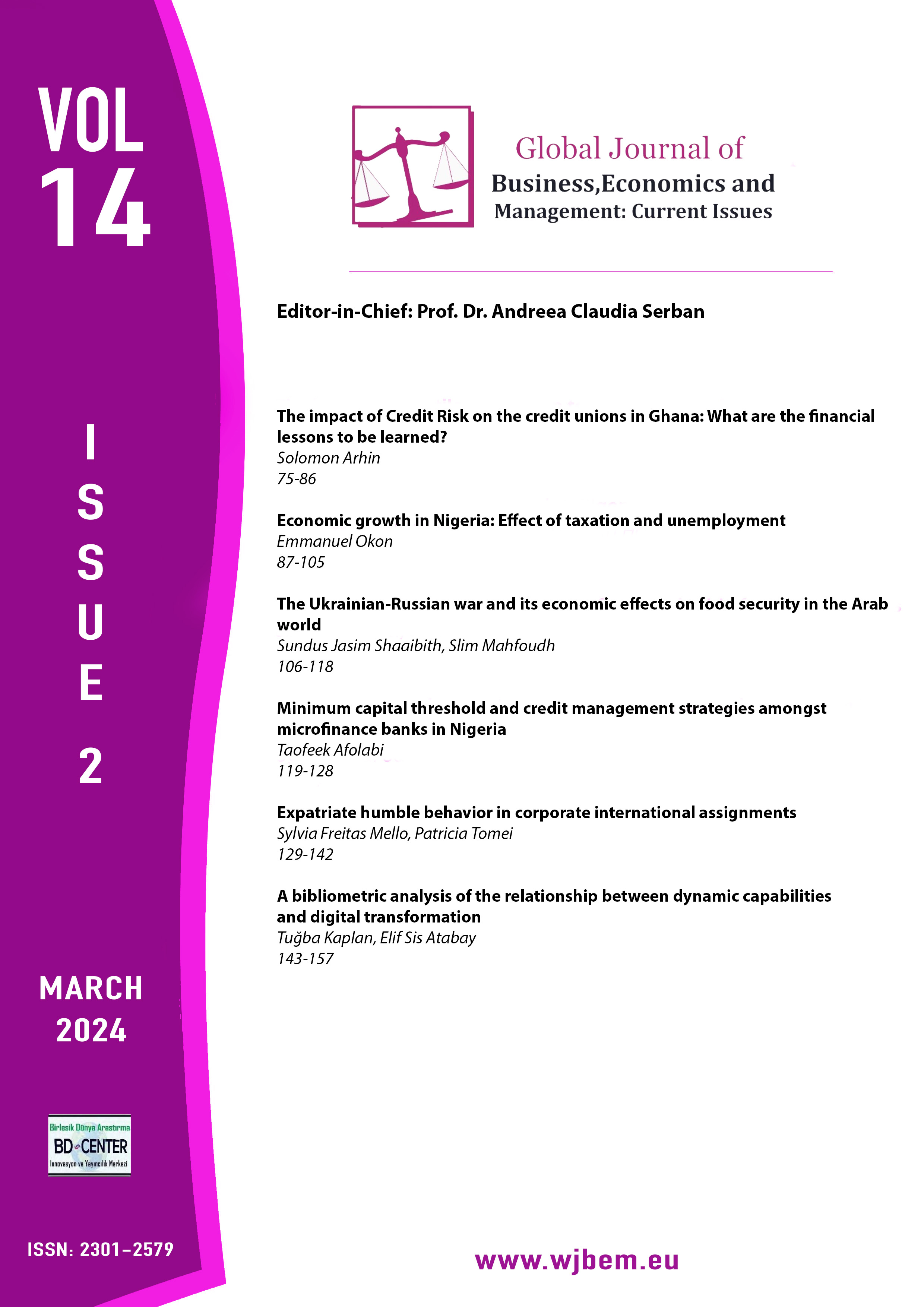Economic growth in Nigeria: Effect of taxation and unemployment
Main Article Content
Abstract
This study seeks to examine the effect of taxation and unemployment on economic growth in Nigeria over the period 1994 to 2022 using time series data. The data for the variables used in the study were derived from secondary sources and the Autoregressive Distributed Lag model (ARDL) technique was used to examine the relationship among the variables. The empirical results from the study showed that customs and excise duty (LOGCED), petroleum profit tax (LOGPPT), companies’ income tax (LOGCIT) have a positive significant impact on economic growth in Nigeria while value-added tax (LOGVAT), and unemployment rate (LOGUNP) both have a negative and insignificant relationship with economic growth in Nigeria (LOGRGDP). Drawing from the findings of this study, the Nigeria Government should encourage the petroleum sector to grow so that more revenue should accrue in support of other sectors of the economy like mining, agriculture, and many others, to create employment opportunities, enhance the level of income of the citizens to raise the consumption level of the people to accelerate value-added tax revenue which will in turn lead to economic growth.
Keywords: Autoregressive distributed lag model; real gross domestic product; tax; unemployment.
Downloads
Article Details

This work is licensed under a Creative Commons Attribution-NonCommercial-NoDerivatives 4.0 International License.
The Global Journal of Business Economics and Management: Current Issues is an open-access journal. The copyright holder is the author or authors. Licensee: Birlesik Dunya Yenilik Arastirma ve Yayincilik Merkezi, North Nicosia, Cyprus. All articles can be downloaded free of charge. Articles published in the Journal are Open-Access articles distributed under the CC-BY license [Attribution 4.0 International (CC BY 4.0)].

